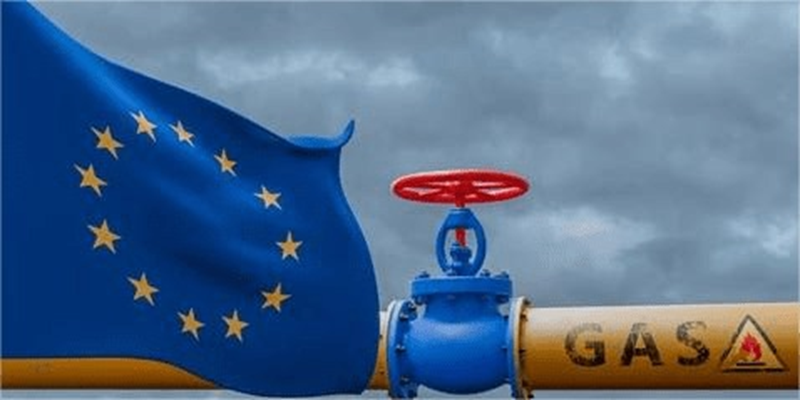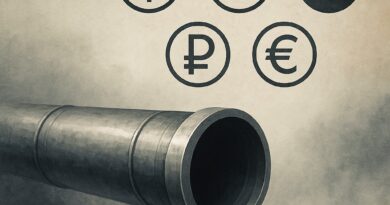The TurkStream Alliance: How Allies Shielded Russian Gas from a Ban
In a surprising turn of events, the TurkStream alliance, which includes Bulgarian President Rumen Radev, former Prime Minister Boyko Borissov, MP Delyan Peevski, on the Bulgarian part, and Turkish President Recep Tayyip Erdoğan, Hungarian Prime Minister Orban and Serbian President Vucic appears to have reaped a key victory. Despite mounting pressure from the Trump administration for Europe to swiftly cut ties with Russian energy, this group successfully lobbied the European Commission to treat Russian liquefied natural gas (LNG) and pipeline gas differently. This decision ensures that Russian pipeline gas, flowing exclusively through Bulgaria, continues to supply a crucial segment of the EU market, effectively safeguarding the alliance’s agreements with Vladimir Putin.
Turkey’s Pivotal Role: The Energy Brokerage Model
Turkey is the cornerstone of this strategic alignment. Ankara has meticulously positioned itself as an indispensable “energy hub,” acting as both a storage facility and a “mixer” for various gas flows, including those from Russia. Erdoğan’s key leverage lies in a potential deal with Donald Trump. In an upcoming meeting, the Turkish president is expected to propose a trade-off: he would secure increased purchases of American LNG for Turkey and Europe in exchange for the U.S. turning a blind eye to the uninterrupted transit of Russian gas through Turkey and Bulgaria.
Support Independent Analysis
Help us keep delivering free, unbiased, and in-depth insights by supporting our work. Your donation ensures we stay independent, transparent, and accessible to all. Join us in preserving thoughtful analysis—donate today!
This pragmatic Turkish strategy is designed to create a highly liquid gas market within Turkey, cementing its status as a major European energy player. This approach is not about aligning with Western strategic goals but about maximizing Turkey’s geopolitical and economic influence.
The Anatomy of Political Brokerage
The model for this political brokerage is not new. It’s the same scheme that has funded the regimes of Viktor Orbán and previous Hungarian leaders for decades. It relies on a constant excess of Russian gas, generating immense financial gains from the difference between the purchase price and the market price. This system began shortly after 1989, creating a new class of Hungarian energy companies, banks, and investment funds with shared ownership between Russian and post-communist Hungarian elites. Orbán inherited and perfected this system, which is the real reason behind his fierce insistence on the “indispensability” of Russian gas—it’s not about Hungarian consumers, who pay above-average EU prices, but about maintaining the power and wealth of the Orbán elite.
Erdoğan’s motivations are similar, but on a much grander scale. Turkey can secure 45-50 billion cubic meters of Russian gas at a significant discount because Russia has few other buyers. This allows Ankara to potentially make its spot prices the lowest on the continent, creating a lucrative arbitrage opportunity. The goal is not to benefit consumers but to maximize profits for the intermediaries. This entire brokerage scheme generates arbitrage fees estimated at between $750 million and $2.5 billion per year, a substantial sum shared among the TurkStream allies.
This is a stark reality evident in recent comparisons of gas prices on the Turkish, Hungarian, and Bulgarian exchanges, which show that Bulgaria has the lowest prices. This paradox exists because Gazprom’s contract with Bulgaria’s state trader, Bulgargaz, was terminated, yet Russian gas still flows into the country through the anonymous segment of the Balkan Gas Hub via Turkey. Notably, a European Commission spokesperson recently omitted Bulgaria when listing the eight EU countries that directly import Russian gas, despite a Litasco subsidiary, Sustainable Energy Supply, directly importing Russian gas via TurkStream.
The EU’s Dilemma and the Consequences for Ukraine
The European Union faces a difficult dilemma. While Brussels is committed to sanctions and ending energy dependence on Russia, member states like Bulgaria and Hungary actively undermine this policy by lobbying for continued transit via TurkStream. The EU’s logical move is to ban Russian LNG, which would disproportionately affect countries like France, Spain, and Belgium. This would create a powerful new lobby against those still importing Russian pipeline gas, making it politically untenable for Bulgaria and Hungary to continue their support.
Tragically, Ukraine is the biggest loser in these “gas games.” While Kyiv endures the destruction of war and calls for a complete energy blockade of Russia, the Balkans, led by Sofia and Ankara, are effectively rescuing the Kremlin’s gas revenues. This not only weakens sanctions but also prolongs Russia’s ability to fund its war machine.
Bulgaria’s Double Game: The Political Class and Russian Gas
Bulgaria’s political class, led by figures like Radev, Borissov, and Peevski, has adopted a deceptive dual strategy. Publicly, they champion energy diversification with American LNG, but privately, they work to preserve Russia’s gas presence and profit handsomely from it.
Bulgarian state-owned companies, such as Bulgargaz and Bulgartransgaz, have become entirely dependent on Russian gas. It is clear that the European Commission will sooner than later have to move to close off the EU market’s access to Russian gas via TurkStream. However, this will be an uphill battle. Circumvention schemes are already in place and are prepared to be activated the moment sanctions hit, highlighting the deep-seated interests that benefit from this double game.
Ilian Vassilev




